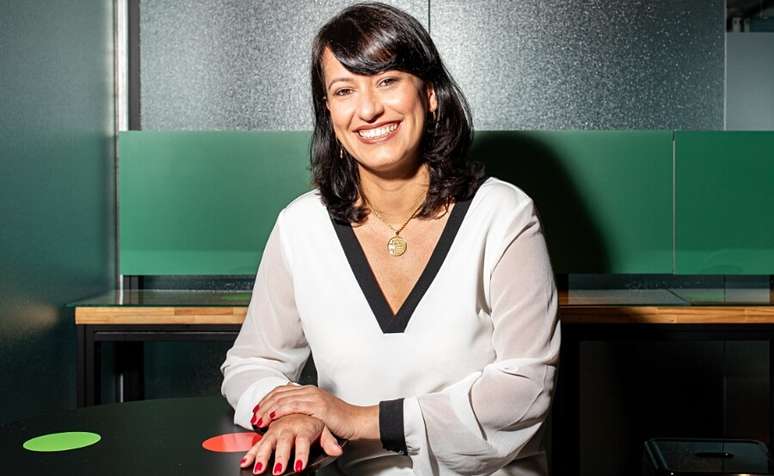Can you (really) disconnect from work during the holidays? follow these tips
html[data-range=”xlarge”] figure image img.img-80c6e93223f017200acc0edc6e32ed28jgxqvywb { width: 774px; height: 517px; }HTML[data-range=”large”] figure image img.img-80c6e93223f017200acc0edc6e32ed28jgxqvywb { width: 548px; height: 366px; }HTML[data-range=”small”] image figure img.img-80c6e93223f017200acc0edc6e32ed28jgxqvywb, html[data-range=”medium”] figure figure img.img-80c6e93223f017200acc0edc6e32ed28jgxqvywb { width: 564px; height: 377px; }HTML[data-range=”small”] .article__image-embed, html[data-range=”medium”] .article__image-embed { width: 564px; margin: auto 0 30px; }
At a time when many people are planning to take a well-deserved break on holiday, it’s important to remember that there is more to it than arranging the details of the trip itself, such as booking your hotel and buying your plane ticket.
The most important decision starts first in the mind, when the person commits to really disconnecting from work in the period. While this may seem obvious at first glance, know that sadly most people don’t take that rest.
Look at these numbers: 30% of Brazilians check their work email on free days and 61% have already canceled work holidays, according to a survey carried out by the consulting firm Northstar, which listened to 11,000 people. It is also very common that people do not use the entire holiday period to which they are entitled: a survey conducted by ISMA-BR (International Management Association) shows that 43% of workers are afraid of going on holiday.
Why the fear of going on vacation?
The reasons are different, but they give us the necessary clues so that it is possible to log off effectively during the rest period.
First of all, many people are afraid of “missing” some company movement while they are away from home, or they believe that going on vacation and unplugging could have an impact on a promotion or career acceleration. This is due to the belief, still prevalent in older managements, that the time dedicated to work reflects the commitment to the company.
Other great saboteurs of disconnection on vacation are the digitization of companies and the ease of access via smartphone, which cause a hyperconnection bias and a perception of high availability of the person with work. If not well managed, the line between personal and professional life is crossed, with serious implications for people’s mental health.
In my personal journey, I confess to having experienced it as an entrepreneur at the head of Vittude. Many times I have been afraid to go on vacation and drop a plate. It took me over 5 years to be able to take my first few days completely offline, so now that I’ve done it, I want to share what I’ve learned about doing it in a planned and mindful way.
Organize yourself so that the team can fend for itself
In May, I took two weeks off and traveled to Paris and Ireland, choosing a destination that was conducive to disconnection, which I’ll tell you about below. But before I allow myself to spend this bumpy season abroad, I’ve arranged a number of things for my time off work.
- • Prepare the team
I trained, delegated, created documents to consult when I was not there. I’ve created documentation on everything I’ve done, with diagrams of where to find the materials needed for certain requests and decision trees for situations that might arise in the dynamics of the business.
It is very nice to see the positive side effects of this decision. By structuring my work this way, I’ve given people on the team autonomy to make decisions based on well-targeted guidelines. Unless there is a totally unpredictable tsunami during the holiday period, everything would be fine, which happened to me.
- • Turn off work-related electronics
Insert an automatic vacation notice in your email, notifying you that you have limited access to messages and calls, and naming who is responsible.
Temporarily delete apps like Slack, Teams, or others that are used to communicate with people at work.
- • Turn off all types of notifications
Archive WhatsApp or Telegram groups that are connected to work.
If you want to completely disconnect, even from social networks, you can choose to delete these apps even during your absence or at least turn off notifications, which reduces the desire to open the app all the time to see what’s new.
Tips for a real mental and emotional rest
When I worked as a CLT before becoming an entrepreneur, I had a ritual: my holidays always started with a marathon. I chose the race I was going to run, signed up and trained all year with that as my goal. I arrived at the test site on Thursday, to adjust to the time zone or local temperature for a few days, ran on Sunday and started my holiday on Monday.
I’ve done it in Berlin, Chicago and Paris. By the way, when I left the corporate market and decided to go down the road of entrepreneurship, I ran 42km on the streets of Paris, 40 days before founding Vittude.
In May of this year, I attended one last professional appointment in Paris before leaving for the holidays. During those days, I maintained my daily exercise routine by running through the streets of the City of Light, even though the average temperature was only 10ºC. Thus, I kept my physical health up to date and of course enjoyed my first days off with friends in the city.
- • Completely disconnect from the Internet
The real period of disconnection happened in Ireland. I spent a week at the house of a great friend-sister and, when I arrived at her house, coming from the airport, I asked the usual automatic question: “What is the wi-fi password?”
To my surprise, he replied that he didn’t have wifi at home. That she and her husband accessed the Internet during the day at work, and that the end of the day was spent enjoying family. No connection. What a great life lesson, huh?

- • Get close to nature, cultivate moments of silence
The fact that I didn’t have Wi-Fi where I was staying was great and even better suited my initial goal of disconnecting. I was able to reconnect with nature. I meditated every day breathing that pure air of a rural area. I read a lot.
Choose a few days, if not the entire period, for a complete disconnect from the Internet. This allows for such a special internal reconnection that everyone should experience moments like this even outside the holiday period, on weekends for example;
- • Visit new places, get to know different cultures
It has allowed me to make new connections and expand my creativity. Make good travel itineraries to enjoy your day, tire your body and rest your mind.
- • Plan routes or excursions, exercise your body
One of the highlights of my holiday was the 5 hour hike I took along the Cliffs of Moher. It’s a beautiful place, with breathtaking scenery, which has been good for my physical, mental and emotional health;
- • Try to get rid of any emotional anchors you may have with work
An acquaintance told me that she even stops wearing the perfume she wears to work on removing any sensory connection to the environment! Interesting, right?
I hope these tips have helped you reflect on the importance of looking after your mental and emotional health, with the holidays being an extremely important time in this process. I came back from my break very energetic, full of new ideas and really ready to go back to work with a light heart.
is a civil engineer and CEO of Vittude, a company that strategically develops and manages mental health programs for businesses.
Source: Terra
Ben Stock is a lifestyle journalist and author at Gossipify. He writes about topics such as health, wellness, travel, food and home decor. He provides practical advice and inspiration to improve well-being, keeps readers up to date with latest lifestyle news and trends, known for his engaging writing style, in-depth analysis and unique perspectives.









